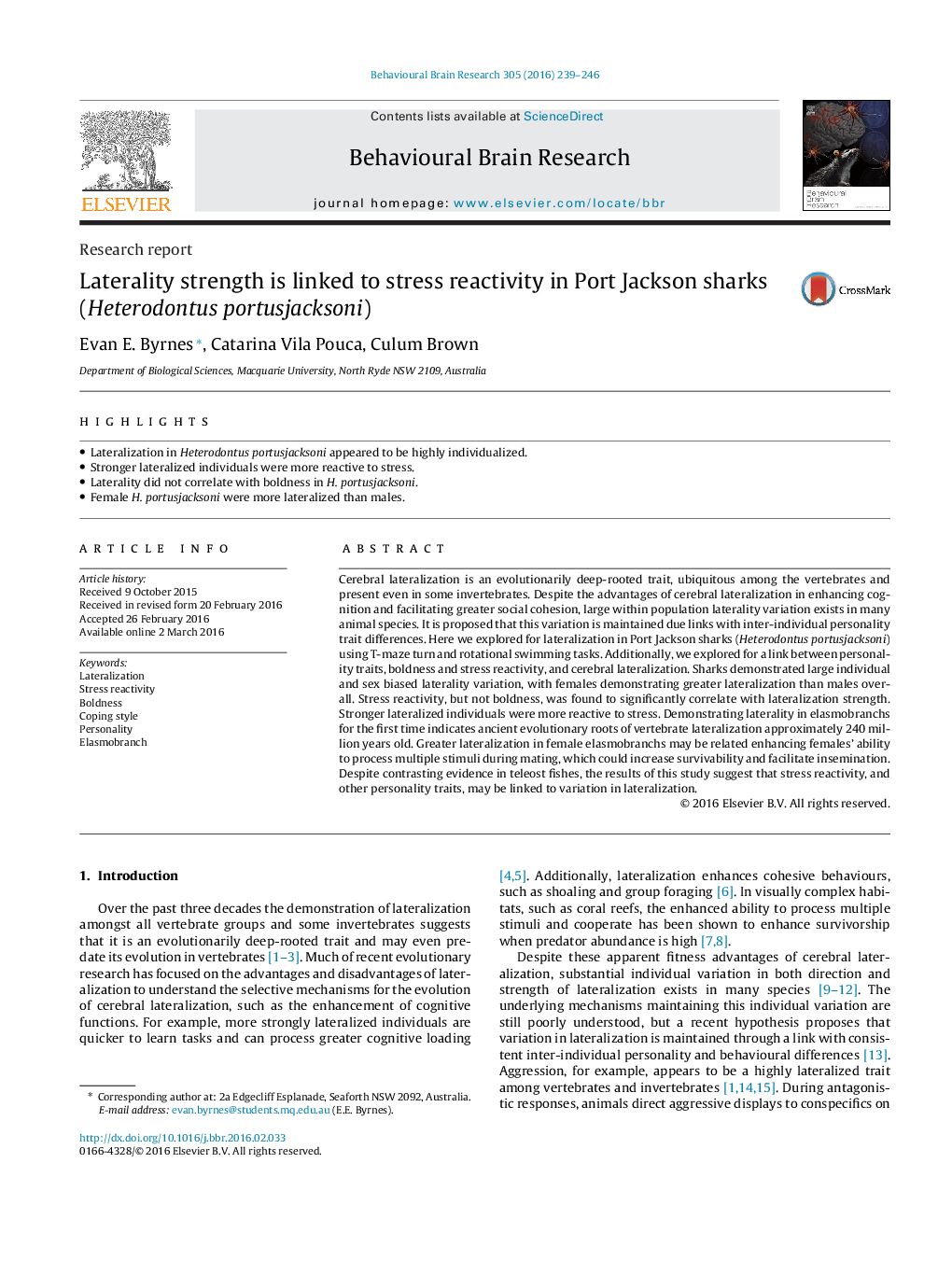| Article ID | Journal | Published Year | Pages | File Type |
|---|---|---|---|---|
| 4312165 | Behavioural Brain Research | 2016 | 8 Pages |
•Lateralization in Heterodontus portusjacksoni appeared to be highly individualized.•Stronger lateralized individuals were more reactive to stress.•Laterality did not correlate with boldness in H. portusjacksoni.•Female H. portusjacksoni were more lateralized than males.
Cerebral lateralization is an evolutionarily deep-rooted trait, ubiquitous among the vertebrates and present even in some invertebrates. Despite the advantages of cerebral lateralization in enhancing cognition and facilitating greater social cohesion, large within population laterality variation exists in many animal species. It is proposed that this variation is maintained due links with inter-individual personality trait differences. Here we explored for lateralization in Port Jackson sharks (Heterodontus portusjacksoni) using T-maze turn and rotational swimming tasks. Additionally, we explored for a link between personality traits, boldness and stress reactivity, and cerebral lateralization. Sharks demonstrated large individual and sex biased laterality variation, with females demonstrating greater lateralization than males overall. Stress reactivity, but not boldness, was found to significantly correlate with lateralization strength. Stronger lateralized individuals were more reactive to stress. Demonstrating laterality in elasmobranchs for the first time indicates ancient evolutionary roots of vertebrate lateralization approximately 240 million years old. Greater lateralization in female elasmobranchs may be related enhancing females’ ability to process multiple stimuli during mating, which could increase survivability and facilitate insemination. Despite contrasting evidence in teleost fishes, the results of this study suggest that stress reactivity, and other personality traits, may be linked to variation in lateralization.
